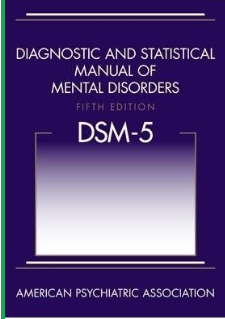 Part I in a two-part series
Part I in a two-part seriesBy Dr. Helen Horvath
Photo, left: isolation during COVID-19 has increased stress, anxiety and depression (Creative Commons image via Bing)
July 29, 2020 (San Diego’s East County) – COVID-19 has substantially changed our world, along with our relationships. Isolation due to quarantine and lockdowns, stress over loss of a job or loved one, has further exacerbated mental health conditions ranging from depression to anxiety.
In this first of a two-part series on mental health and COVID-19, ECM examines the causes of mental illness, the role of genetics, as well as treatments and the availability of services in our communities.
Who knew that the YMCA had mental health services and an inpatient mental health facility? ECM also spoke with YMCA Youth and Family Services to augment our report, also providing a list of local and national resources to get help—including online and phone options for counseling, group sessions and more during the COVID-19 pandemic.
Mental illness and genetics
According to the World Health Organization, one in four people globally have mental health issues during their lifetime. Look around you, count four people, and decide who may have a mental health disability – that’s easy right? Unfortunately, mental health is considered an invisible disability that carries great stigma. Just as with counting every fourth person and deciding that someone has a mental health disorder even if they may not; the stigma of mental health creates an inaccurate picture of successes in our community. Chances are that someone in your life has been affected by mental illness.
Dr. Schahram Akbarian, professor of psychology and neurology at Mount Sinai Hospital in New York City discussed the current understanding of the genetics involved in mental health and illness in a March 31, 2020 article. He noted that every one of us, on the basis of genetic sequencing, carries some measurable risk of psychiatric disorders. This is no different than cancer, heart disease, or other illnesses.
He stated that genetics is just one part of the puzzle that determines mental health. When a baby is in a mother’s womb to early childhood and beyond, genetics is combined with the environment to play a part in the development of mental health. This creates a perfect storm at times to develop genome variations of mental illness tied to environmental factors (genetic code). Some mental illnesses may be in our family history; yet, why do only two in 100 people develop bipolar disorder? Sometimes a genetic predisposition for mental illness has a final trigger to activate our genes to create the mental illness – typically, this is the environment.
Research into mental health diagnosis shows that some mental health diagnoses are environmental--based upon past childhood experiences, developmental factors, behavioral history, and current relationships. Researchers believe that environmental and other non-genetic factors make up 60% of the depression in our society. Other mental health disabilities have been found to be genetic through human genome research projects.
 In a research study published by the American Journal of Psychiatry, British researchers were able to isolate a gene that appears to be prevalent in multiple families with depression. The chromosome 3p25-26 was found in 800 families with recurring depression. The researchers believe that as many as 40% of depression cases can be linked genetically.
In a research study published by the American Journal of Psychiatry, British researchers were able to isolate a gene that appears to be prevalent in multiple families with depression. The chromosome 3p25-26 was found in 800 families with recurring depression. The researchers believe that as many as 40% of depression cases can be linked genetically. A person who grows up with someone with depression may be more likely to experience depression because of learned behaviors combined with genetics. The skill learned in this situation is that depression serves a purpose and the individual may mimic their parent’s behaviors under a variety of environmental situations. Once the person learns new coping mechanisms through therapy, the depression has a chance of subsiding.
Within our communities, we have individuals who successfully manage their mental health disorders. They attend therapy, do mental health check-ins once their course of therapy is over, and create forward movement in their family and professional lives. This takes mindfulness and a planned intention to stay mentally healthy. When a person with mental health feels “off”, it is time for a check-in before the issue grows deeper and more difficult to pull back from. Others, like Kanye West, struggle publicly, sometimes long-term, with their diagnosis of mental health.
Treatment for depression and other mental health disorders: Finding the right provider
If a person has heart problems, they should seek out a cardiologist. Or if a woman is pregnant, she obtains medical care from an obstetric/gynecologist (OB-GYN). Mental health is no different; it’s imperative to seek out the right provider.
 When accessing mental health services – how can you find the best provider for your specific case?
When accessing mental health services – how can you find the best provider for your specific case?There are many types of providers in the mental health field that include Licensed Clinical Social Workers (LCSW), Licensed Professional Counselors (LPC), Art Therapist, Play Therapist, and a variety of other mental health professionals. Most will have either a master’s or doctoral degree in psychology, social work, or related field. Each will work under a psychologist or psychiatrist’s license for oversight of their work. Doctoral level providers do not have a requirement for oversight, except their respective state approval agency.
The key to finding a great therapist is to research the therapist through the state’s Board of Behavioral Sciences (therapists), Board of Psychology (psychologists), or Medical Board to determine if the individual had ethical or behavioral issues reported to the State. There are a lot of great therapists in our community; yet, finding the right therapist to work with is critical to resolving environmental or genetic mental health disorders.
 Medication Management
Medication ManagementECM focuses on mood disorders in this segment due to the debate regarding the use of medication to augment therapy for those with mood disorders. Kanye West recently admitted he had bipolar disorder, a very real mood disorder in our communities. He chooses not to use mental health medication due to the fact that it “changes him…makes him less creative.”
Medication management of mental health may not be for everyone due to medication side effects or other factors that impact the body. This is where coordination with a medical provider is needed to ensure that your medications are working as prescribed. Speak frankly with your provider to ensure that you are getting the right therapy for the right disorder and that your mental health medications do not conflict with medication taken for a physical ailment.
An important key to medication management is do NOT stop taking medication without consulting your doctors.
Schizophrenia is often one of the diseases tied to bipolar disorder. Often bipolar clients are misdiagnosed with schizophrenia and vice versa. The clinician makes a diagnosis based upon the diagnostic and statistical manual 5th edition (DSM-5) guidelines. A client can appear one way one day and different the next based upon environmental factors, mood and effects. It takes several appointments with a clinician to determine a specific mental health diagnosis and develop a treatment plan.
With schizophrenia, bipolar disorder or another mental health diagnosis, psychiatrists in consultation with the clinician may prescribe medication to control the symptoms of the disorder. Bipolar disorder has many faces in a person. Yet, most clients experience high as a kite, over the top exuberance--manic symptoms which make bipolar clients very productive, but then the swing to depression and lethargy, creating a cycle of behavior that is recognized by clinicians.
When a person is “manic” they may experience:
- Talkativeness
- Rapid speech
- Decreased need for sleep
- Racing thoughts
- Distractibility
- Increase in goal-directed activity
- Psychomotor agitation
- Expansive mood
- Mood lability
- Impulsivity
- Irritability
Some in a manic phase may have “magical thinking” or impulsivity that leads to dangerous situations, such as believing they can fly off the family’s roof or that they are superman/woman. Recognition of the irrationality of behavior is key to successful management of mental health disorders, leading to a need for medication management of the mental health illness.
 In speaking with many bipolar clients in the past, one of the most hated things about the medication used for management of bipolar disorder is that medication creates an evenness in the client’s life. Basically, the excitement of the high and creativity in the manic phase is now flat or even changing how the person interacts with a world. At times, medication is the only solution to stop the behaviors associated with bipolar disorder. The length of time a person stays in a particular phase is based upon their own physiology and environmental factors.
In speaking with many bipolar clients in the past, one of the most hated things about the medication used for management of bipolar disorder is that medication creates an evenness in the client’s life. Basically, the excitement of the high and creativity in the manic phase is now flat or even changing how the person interacts with a world. At times, medication is the only solution to stop the behaviors associated with bipolar disorder. The length of time a person stays in a particular phase is based upon their own physiology and environmental factors.Mood disorders in our community have many faces that are tied to both genetics and our environment as a child and an adult. How we respond to our environment will determine how we thrive in the environment.
COVID-19 and mental health in our communities
According to Krysta Esequivel, Executive Director for YMCA Youth and Family Services and Brittany Vetter, Associate Director YMCA Youth and Family Services, there has been an increased need for mental health services during the pandemic. Many of the increased services center around environmental factors that began with COVID-19 .
The YMCA staffers say that they are seeing more demand for individual, couples, and family therapy services, with a small increase in couple’s therapy specifically. Community members are able to access services through the YMCA’s behavioral health unit. Appointments now use video conferencing for appointments, creating easier access for clients.
Additional agencies include the National Alliance on Mental Illness. The non-profit that began around a kitchen table in 1979 has grown into the leading voice for mental health in our communities. There are more than 650 local affiliates today working to provide education and support to those in need. NAMI has specific minority programs available for those in need of services. Locally, NAMI San Diego normally provides education, training, and programs. Yet, due to COVID-19, NAMI San Diego has not been able to schedule typical organizational efforts for mental health issues in our community. Fortunately, however, help is available through a variety of resources.
How to access mental health services in our communities
Beyond mental health diagnoses, the community is often challenged during this COVID-19 national health emergency with other aspects of mental health services. These challenges include inability to afford individual or couples therapy, as well as lack of money to access inpatient services for children and adolescents. Many lack knowledge of how to access low or no cost mental health services within our communities.
ECM has provided a list of potential resources to obtain mental health services in our community. Some programs do accept income based fees on a sliding scale.
To stem the tide of suicides in our country, the National Suicide Prevention Lifeline--1-800-273-8255--provides a national network of local crisis centers who provide free and confidential emotional support to people in suicidal crisis or emotional distress 24/7. The Lifeline works with clients to empower and build awareness for clients through professional best practices.
Suicide in our active duty and veteran population historically can be linked to psychological environmental factors such as military rape, sexual assault, VA claims issues and a sundry of other environmental causes.
There are multiple federal government resources available to simply talk or obtain assistance. The Substance Abuse and Mental Health Services Administration (SAMHSA) funds a national helpline. The helpline is open 24/7, 365 days a year with services in English and Spanish. In addition, SAMHSA has an online treatment locator that has approximately 244 inpatient and outpatient mental health providers listed for a variety of services. Some are sliding scale income-based fees and others are tied to health insurance co-pays.
If your family is financially challenged during the COVID-19 national emergency, please contact 2-1-1 San Diego to obtain referrals to key community agencies who accept a sliding scale fee per appointment for your area. SAMSHA only maintains lists of member providers, whereas 2-1-1 may have a larger referral pool of mental health providers locally than SAMHSA.
Organizations such as the YMCA Behavioral Health unit have highly qualified and caring staff that will not only address mental health issues, they will use a whole person view of all areas of help needed to get a person back on their feet due to COVID-19 or just general life issues impacting the individual, family, or couple.
The key to finding the right provider also includes finding one who works within your schedule through videoconferencing or other methods of communication during the pandemic. According to the YMCA Y&FS staff, “In the COVID-19 environment, many healthcare and mental health providers are now providing therapeutic services online through telehealth (VA), zoom, telephone, and other technology solutions.” The YMCA has also moved its mental health appointments online due to the COVID-19 national emergency.
For more information about mental health in our community please use one of the resources listed above.
Remember, you are never alone! We are here for each other.
 Dr. Helen Horvath is a psychologist, organizational development consultant and published author on a variety of psychology and business topics. As a speaker, she has presented at the American Psychological Association Annual Conference, Society of Industrial and Organizational Psychology, and other key professional organizations. She is a former marriage and family therapist and published a relationship book entitled “Put a Period to IT: When Divorce is the Option.” Dr. Horvath writes for East County Magazine relating to COVID-19 topics.
Dr. Helen Horvath is a psychologist, organizational development consultant and published author on a variety of psychology and business topics. As a speaker, she has presented at the American Psychological Association Annual Conference, Society of Industrial and Organizational Psychology, and other key professional organizations. She is a former marriage and family therapist and published a relationship book entitled “Put a Period to IT: When Divorce is the Option.” Dr. Horvath writes for East County Magazine relating to COVID-19 topics. East County Magazine gratefully acknowledges the Facebook Journalism Project for its COVID-19 Relief Fund grant to support our local news reporting including impacts on vulnerable communities during the COVID-19 pandemic. Learn more: #FacebookJournalismProject and https://www.facebook.com/fbjournalismproject/.
You can donate to support our local journalism efforts during the pandemic at https://www.EastCountyMedia.org/donate










Recent comments